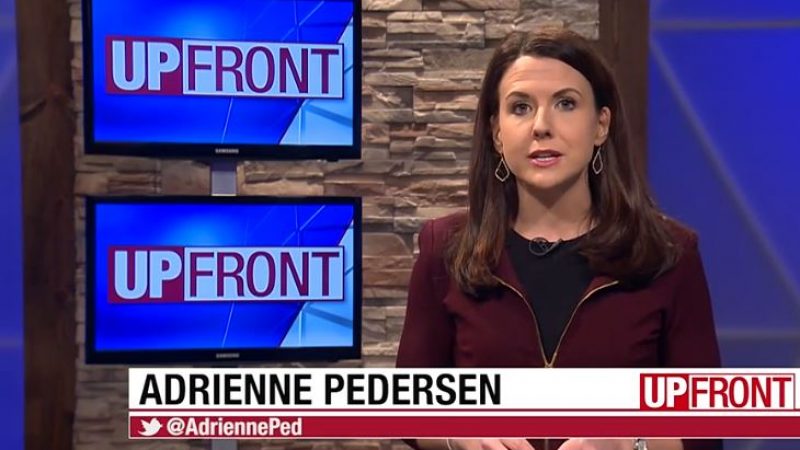State Rep. LaKeshia Myers says police reform legislation Gov. Tony Evers and Lt. Gov. Mandela Barnes announced is a “great start.”
Myers, D-Milwaukee and chair of the Legislative Black Caucus, said on Sunday’s “UpFront” the bills address things “we’ve been concerned about and immediately tries to curb some of the disparate treatment that happens to people of color across the state.” The show is produced in partnership with WisPolitics.com.
The legislation would ban the use of chokeholds, allow deadly force only as a last resort, ban no-knock warrants and create a $1 million grant program for community organizations utilizing violence interruption strategies to mediate conflicts, among other provisions.
Host Adrienne Pedersen asked if Myers was frustrated the governor didn’t call a special session to take up the bills.
>> WisPolitics is now on the State Affairs network. Get custom keyword notifications, bill tracking and all WisPolitics content. Get the app or access via desktop.
Myers said she was instead “frustrated that as a legislative body we didn’t do enough when we were in our original session.”
She also said not having a special session was a “blessing in disguise.”
“I would rather us not go into something forced or into a situation where we were not going to get all we deserved for the people,” she said. “I want us to do the work and not just throw something together.”
In another segment Rep. John Spiros, R-Marshfield, said he hopes there’s a “bipartisan way forward” on police reform.
Spiros was a police officer in the 1980s and chairs the Assembly Committee on Criminal Justice and Public Safety.
Spiros said he’s “willing to sit down and listen” on the issue.
“I think what we saw in Minneapolis was a bad deal. He’s a bad officer and he’s had problems in the past. That’s not the precedent for all officers,” he said. “But for what happened in Minneapolis, and that officer was still on the street, I would definitely say that certain things need to be changed.”
Spiros said he thinks President Trump’s executive order on incentive grants, banning chokeholds and creating a police misconduct database are a starter. He also wants to sit down with community leaders and law enforcement to figure out what to do next.
“Really what needs to happen is we all need to come together and put together something that’s going to work for all of us,” Spiros said.
Also on the program, new Milwaukee City Attorney Tearman Spencer says he’s “extremely” concerned about how much money the city will owe in pending police brutality cases.
Spencer told Pedersen he’s doing an ongoing investigation and audit into pending cases and will have updated numbers once that’s complete.
Spencer noted that according to published reports, the city has spent about $30 million to date in settlements due to police misconduct and excessive use of force.
He said he’s working to implement a system to “intervene early and have early identification and evaluation, which can help us curtail those costs.”
Spencer said he hoped for legislative changes to “put the onus and the burden on the wrongdoer to help share that risk that we normally have to absorb to give them the motivation to not engage in that behavior.”
Spencer said he’s also still reviewing $691 curfew tickets issued to protesters and hopes to wrap up the process within the next week.
In a final segment, reporter Matt Smith spoke with Paul Radspinner, president and CEO of FluGen, on the race to find a coronavirus vaccine
FluGen is a small lab in Madison partnering with the University of Wisconsin and Bharat Biotech, a global vaccine manufacturer.
“First of all you want to make sure safety, safety, safety,” Radspinner told Smith. “You have to have safe vaccines, and they have to work because the public’s trusting us to make sure that happens.”
Radspinner says in his 25 years in the industry he’s never been part of something so rapid.
“Again you’ve really got to keep your eyes on the safety and if that means an extra six months, a year, that’s got to happen,” he said, “If it’s next summer a vaccine comes out, so be it.”
See more from the show:
https://www.wisn.com/upfront



